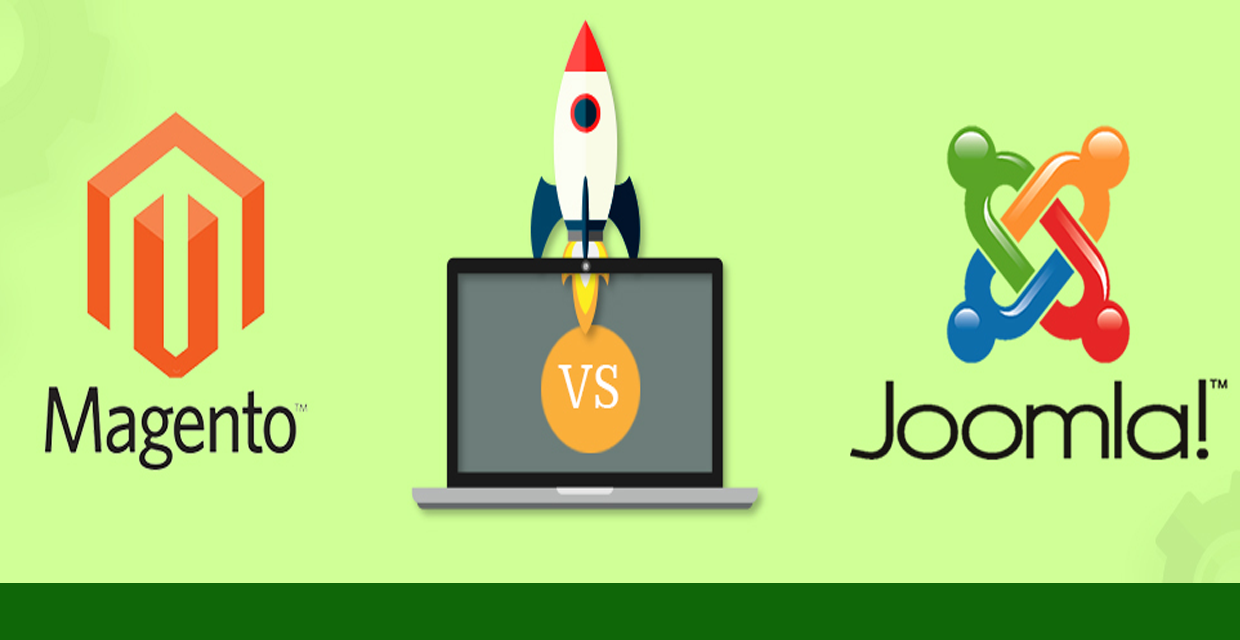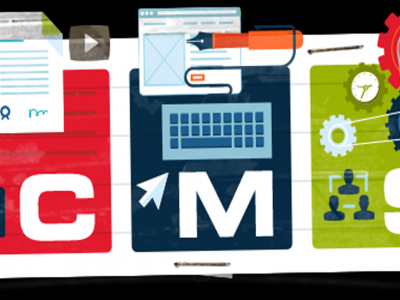
Joomla Hosting VS Magento Hosting – Which is Reliable E-commerce Solution?
ReliableASPNETHosting.com | In this post, I want compare between these two famous CMS for web development. I am sure that you already know several features of Magento and Joomla, but with this article I am sharing my views about Magento hosting and Joomla hosting. Obviously, both Joomla and Magento are fully open source and best content management systems & booth has its own benefits and drawbacks.
However, both Magento hosting and Joomla hosting are open source solutions for web developers even though there are several variations between them. Joomla and Magento are quite famous because of the prevalence of a huge number of functions, plug-ins and extensions. However, it is usually proper to examine them and analyze their benefits and drawbacks to conclude which is usually more suitable for your web development specifications.
When You Need a CMS
A simple static website will be enough when:
- You just need a description of your product/service plus a couple of easy forms such as Place an order, Subscribe, Contact Us or the like (it is usually enough for selling e-books, music, etc.)
- Your website will be a short-time internet initiative: one-time proposition, sales, giveaway, etc.
- This time the project budget is rather small
You need a specialized e-commerce solution if:
- Your e-shop will contain product catalogs with lots of items and/or categories, which should be updated frequently including descriptions, photos, videos, etc.
- You need effective tools for marketing, selling (catalogs and search, shopping carts, ordering, payments, etc.) and customer relationship management
- You want to be social and close to your clients, allowing them to review goods and products, leave comments, express opinions
- You have customers in other countries or even worldwide and need a multilingual support
If You Need More Than a Simple Website
The common requirements to an e-commerce solution span such aspects as to be fast, full featured, cheap development and maintenance, with an easy learning curve.
There is a vast variety of open source specialized e-commerce solutions on the Web now to choose from. Among them are Magento, osCommerce, Shopify, ZenCart, VirtueMart, just to name a few, that could fit your needs. Moreover, e-commerce solutions are often built on the basis of open source content management systems such as Drupal, Joomla!, lately more and more WordPress, and some others.
What to Keep in Mind When Selecting an e-Commerce Solution
Here is a short list of general requirements to bear in mind when choosing an e-commerce solution:
- All necessary functionalityIt depends very much on background and concrete business needs.
- Usability, user friendlinessand intuitive navigation/functions
The system should be friendly and easy to use for both a customer and you. Essential e-commerce functions (categorization, track inventory, importingdata from an Excel sheet, etc.) should be comfortable to be done.Shopping cart should be easy to navigate and the checkout process must be simple and secure. - Advanced catalogs and searchIt is essential if you have a large product range or multiple categories and sub categories.
- Marketing tools
A good e-commerce platform should have couponing and discounting functions. Promotions and discounts help to improve your sales and customer loyalty. - Order and transaction historyAbility to track orders is important. The past order history improves customer relationship especially if you have repeat clients.
- Analytics and reporting
Ability to track traffic, search queries, most viewed items and have automated sale reports is significant. Knowing who is coming to your site and how they are finding you will help to wisely concentrate the efforts. - Search engine optimization (SEO)
It is critical for the e-shop to be visible to your prospects, which is impossible without a search engine optimized website. E-commerce software should be able to automatically generate page titles, meta tags, alt text and URL of every page.
Magento and Joomla!
One of the most reputed and widely used open source solutions are Magento and Joomla!. Their popularity is constantly growing: now Magento is translated into 60 different languages, Joomla! – into 64. Both have a huge quantity of features, extensions and plug-ins, and sometimes are even considered to be a bit too heavy.
Magento
Magento is one of the leaders among e-commerce solutions, its usage and industry distribution is really great (for example see http://asphostportal.com/Magento-2-0-7-Hosting). Magento key advantages could be considered from both sides of a seller and a customer. Some key features include for the seller:
- Great catalog management
- Marketing tools (coupons, featured items, gift cards and more)
- Advanced shipping support
- Search engine optimization
- Analytics and reporting tools
For customers:
- Filtering products in categories
- Effective and fast search results
- Easy product comparisons and reviews
- One-page checkout capability
- Extensive shipping options
Sometimes Magento is considered to be the most effective system, however it has several essential minuses to keep in mind:
- It has a high learning curve
- Slow on anything less than a dedicated server, i.e., it needs a lot of hardware resources to work efficiently
- Plug-ins and extensions are often costly
- Somewhat difficult to customize
ASPHostPortal Magento Feature
- Host Unlimited Sites
- 5 GB Disk Space
- 60 GB Bandwidth
- 2 SQL Server db
- SQL Server 2008/2012/2014
- SQL Server 2016
- 200 MB SQL Server / db
- 3 MySQL db
- 200 MB MySQL /db
- 200 MB Email Space
Joomla!
Joomla! has thefollowing benefits:
- Comparatively little costs for development and maintenance
- User friendly administrative interface
- High level of security
- Simple file sharing and document management
- SEO and SEM optimized
- Mobile accessibility
- Rather straightforward to work with in terms of tweaking
Joomla! drawbacks:
- Installing and managing the “friendly” URLs do takes a lot of configurations
- Customization requires knowledge of website design and development
- Quite difficult to add categories
- API (Application Programming Interface) is changed a bit too often
One more essential trait is that Joomla! is not an e-commerce solution per se and has to be customized with the help of additional modules and shopping carts like VirtueMart, ZenCart, Shopify, etc. It wouldn’t cost much, would take comparatively less time to implement.
Joomla! – Magento Integration
There is no one-size-fits-all option to perfectly meet all requirements to an internet shop. Joomla!-Magento integration, a solution proposed by the web communities, claims to be ideal. The integration allows getting wonderfully elaborate functionality of Magento cushioned inside of the friendly usability of Joomla!.
As a result, you get a friendly CMS and flexible e-commerce solution plus the following value-added functionality:
- Allows users to stay on Joomla! and still have controls over Magento
- Magento products shown in Joomla!
- Magento shopping cart and catalog in Joomla!
- Integrated search in Joomla!
Integrating Joomla! with Magento is possible to implement, for example, by means of J!Mint (Joomla! Magento integration tool) or MageBridge by Yireo (a bridge between the Joomla CMS and the Magento e-commerce platform).
Of course, Joomla!-Magento integration will make your online store a bit more expensive, take additional time to customize and you will need to put some efforts on learning how to manage both systems or hire a professional to take care of that. But on the other hand, it could be worth these costs because you get an elaborate e-commerce solution.
Magento Pros & Cons
Pros
- Awesome catalog management
- Ample of Marketing tools
- Undoubtedly SEO friendly
- SO many marketing tools available
Cons
- Magento development required lots of hardware resources to work
- Magneto extensions are very costly
- Customize is not easy
Joomla Pros & Cons
Pros
- Joomla Development Required low costs
- Administrative interface is user friendly
- high security
- Document Sharing is Simple
- Best for Search Engine Optimization and Search Engine Marketing
Cons
- Installing and managing the “friendly” URLs do takes a lot of configurations
- URLs Configration is not easy with Joomla development
- Joomla customization must required basic knowledge of website design and development
- Its really hard to add categories
- Magento vs Joomla – Comparision of two best CMS
Conclusion
Before developing your online store, you should outline its scale, for example, decide whether you need a large e-commerce solution to run the business. The next step would be to specify technical requirements to make it easy to choose the best-fit e-shop system.
Now there are a lot of different e-commerce solutions out there. However, the analysis of Joomla! and Magento, leaders among open source content management and e-store systems, shows that unfortunately there is no universal answer for all cases and budgets. Therefore, the final decision is strongly depends on your requirements and goals.












